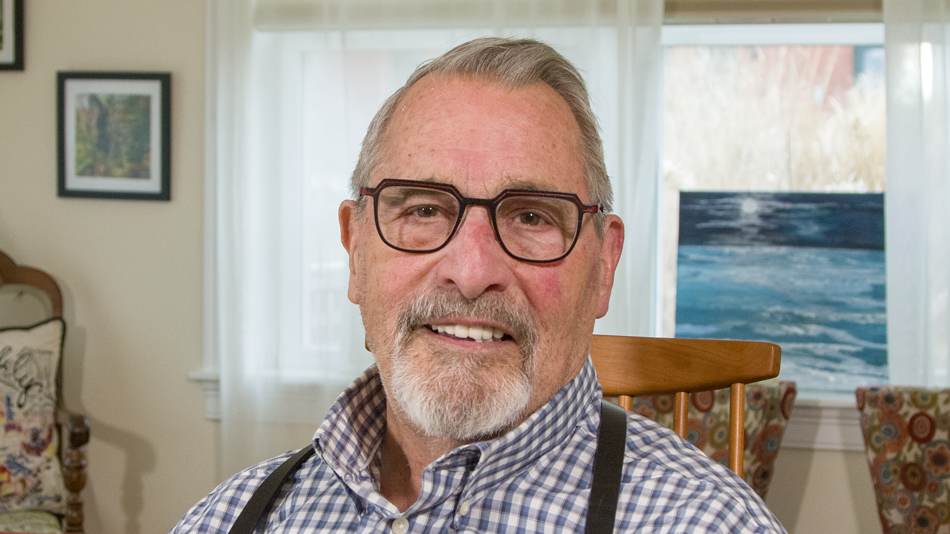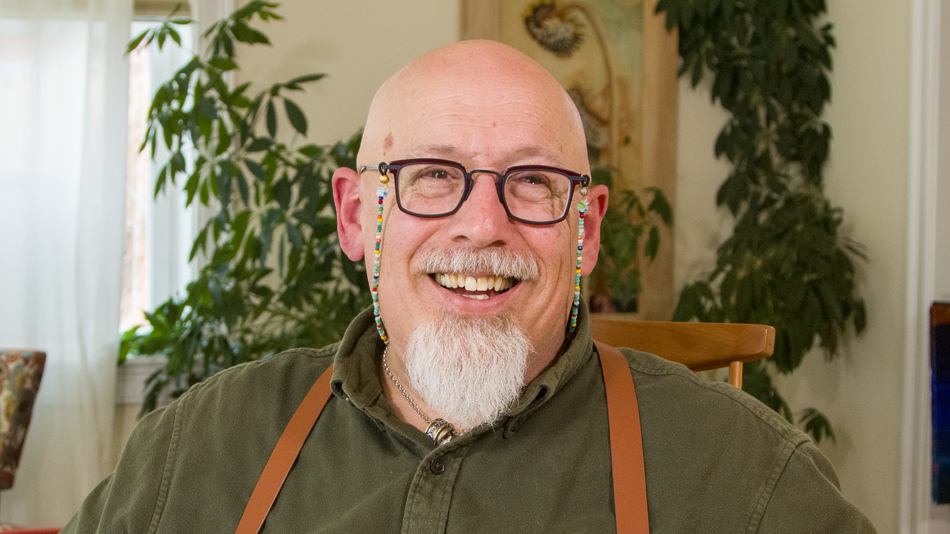I’m Tom Waugh and I’m from Guelph, Ontario.
I’ve been teaching at Concordia University for many decades. It was really only in the 80s I started teaching curriculum related to my identity as a gay man and related to my research interests in terms of the history of sexuality. In the early 80s, I started teaching a course on sexual representation and porn, which involved a certain amount of risk-taking, but Concordia is a really cool place, especially the Faculty of Fine Arts.
It went really well. Students really worked hard in these courses and got a lot out of them. Towards the end of the decade, towards the end of the 80s, we gave – I co-taught the first gay studies course at Concordia. It was really a pioneering course and it was sold out. It was full of gay men and women and we had a really good time.
I remember one of the students would sit in the back of the – a filmmaker, gay filmmaker – would sit in the back room holding hands with his boyfriend. I used to think this was so cute that we had brought together lovers in this academic setting.
I also remember my co-teacher, who had been a pioneer in case studies, Robert Martin, had been one of the first to read Walt Whitman in terms of gay content. He would do the literature, I would do the film. Then one day he got up and was teaching some poetry. I think it might have been a Portuguese poet. I don’t know. He suddenly burst into tears and I couldn’t believe it and this is such non-academic behavior, right? You’re supposed to be objective and scientific and blah blah blah professional. But there was this eruption of emotion and I feel that the students learned more from that than they did anything else that day. Just the fact that we were human beings, we had feelings, and they were very intense feelings.
I just retired and I was cleaning out my office this week. I discovered a little box of analog slides with a note in them. It turns out it was a note from a former student from the 1980s. This man was a gay student and at one point, he disappeared. And I assume he got very sick and went home and died. It was very early on in the AIDS epidemic. I didn’t know any more than that then. I know even less now.
He was in my course and everyone had to do an oral presentation and so he had given me the slides as a follow-up to his oral presentation They weren’t especially related to the subject matter, to gay studies or anything. It was just that he wanted me to have a visual record of his presentation, I guess, when I was grading the paper. And a personal note from him. And so I just kept them and in this sense, it was a memento of, perhaps, a relationship that would have grown a lot more had he not suddenly died. Perhaps a career as a filmmaker that would have grown who knows in what direction, had he not died. He was a filmmaker.
It just reminded me how important my relationship with my gay students is, my LGBTQ students is, over the years. A lot of them come to me and I, it’s not my fault but a lot of them search for role models, I suppose, or parent figures or mentor figures or whatever, but I really value that relationship. And this little anecdote about the slides just confirms that for me.
I think teaching has this element of identification and community in it. It’s just a reminder of the teacher-student relationship as being real fundamental to queer community, to queer history, to my own life and my own vocation. So I hope that it is a clear example of teaching as a relationship between human beings and the deep feelings that are often involved.








Share